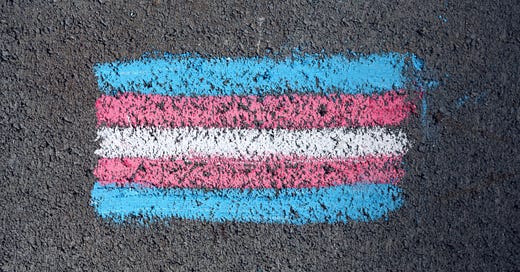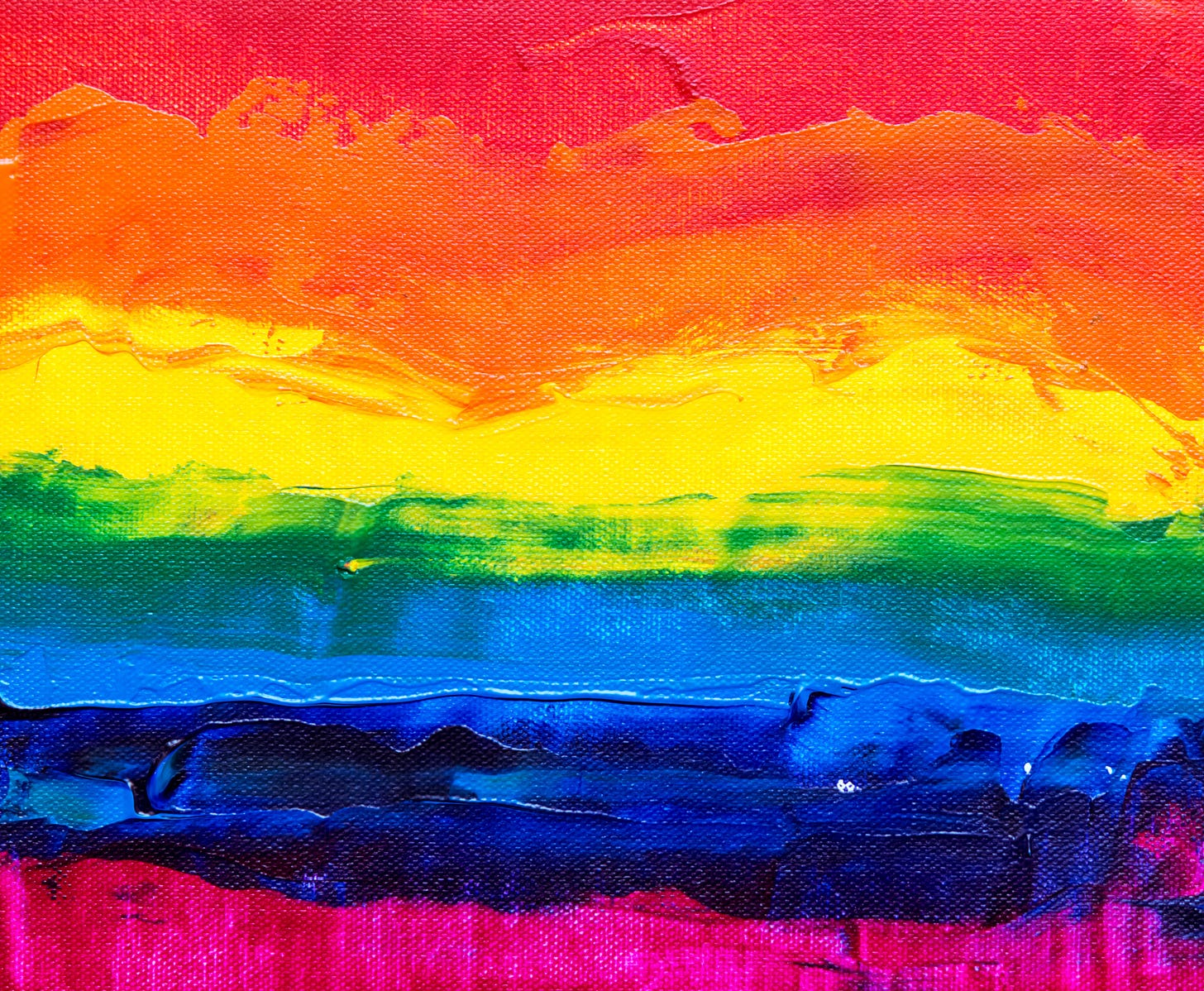Autism Gender? Explaining NeuroGenders: What do AutiGender and NeuroGender mean?
AutiGender is when someone’s gender is influenced by being Autistic, but HOW can being Autistic (or NeuroDivergent) influence someone’s experience of gender?
This is a TOTALLY FREE post, brought to you by our paid community members.
According to Gender Wikki: AutiGender is a NeuroGender identity in which one feels their gender is connected to their autism. Because those with autism may have difficulty understanding societal interactions, this can change their understanding of gender, making it difficult to describe.
AutiGender is also in UrbanDictionary as when someone's autism affects (and/or influences) that said person's gender.
We made it into UrbanDictionary!!!
It’s been a while, but last time I did a video on this topic (old video below), we weren’t in UrbanDictionary yet.
CW: Old video has my dead name in it.
So, now that we know AutiGender is when someone’s gender is influenced by being Autistic, but HOW can being Autistic influence someone’s experience of gender?
Before we go any further, it is important to note that (like with all things there is no one unified Autistic experience of gender) while many Autistic People feel as if their gender is influenced by our Autistic minds, not all Autistic People will identify with or relate to the AutiGender experience.
I also want to quickly define NeuroGender (briefly mentioned earlier).
NeuroGender is an umbrella term describing when someone’s NeuroDivergence influences their experience of gender to such a degree that they cannot separate their experience of gender from their NeuroDivergent one.
Because someone always goes there, I’m going to state the following 3 points as plainly as I can:
This does not mean AUTISM is a gender.
This DOES NOT mean NeuroDivergence IS a gender.
These are terms used to discuss how the NeuroDivergent and Autistic experiences impact someone’s relationship with gender.
How does being NeuroDivergent, specifically Autistic, influence someone’s experience of gender?
Autism influences most things in my life, who I socialize with, the types of relationships I have, how I process information and my experience of the world around me.
Autism is tied into my hobbies, passions, interests, communication style and habits. It’s interwoven into how I interpret and fit within social contexts, structures, and hierarchies.
That’s why I say I am Autistic, instead of that I am “a person with autism” – because, for me, “with autism” sounds minimal for something so integral to my being.
Autism is NOT a separate thing that I “take with me” or something I can lave behind when I venture out (even if I wanted to).
Autism is not something I have “with” me. Autism IS me.
If I were not Autistic, I would literally not be the same person.
Believe it or not, I like the person I am (NOT despite being Autistic, but BECAUSE of my Autistic mind).
Like with everything else, being Autistic has fundamentally shaped how I relate to gender, since gender is a social construct (and social constructs are one of those things that Autistic People don’t always fit neatly within).
For me, being Autistic means, I am willing to examine these social constructs under a magnifying glass, including gender and sexuality.
I don’t fit into the box. I make my own box. I am the square peg that can’t be put through the round hole (without damaging the peg) - and my experience of gender is no different.
Gender for me was a costume, a role I stepped into, that I put it on as part of my mask as an Autistic Person, playing a part, trying to blend in and to be treated better by people in society.
My gender role, the assignment I’d been given, never felt correct, and every reminder of that assignment brought scorn and discomfort.
For many years I complied with these labels because I didn’t know there were other options.
I also conformed because I was sure that nobody would understand what I was going through.
I had a complex mask, that hid my NeuroDivergence, tied into what I felt was “socially acceptable behavior” for the gender that I was assigned at birth.
When I stopped preforming the “NeuroTypical” expectations, dropping that mask, evaluating how I really felt and saw myself (versus acting in a way that made others around me comfortable at my own expense), it became painfully obvious to me how much of my gender presentation was false and performative.
My NeuroDivergent mask had been interwoven into my gender mask, and the two, in my case, were inseparable.
I am nonbinary, and since I cannot separate my nonbinary experience from my Autistic, NeuroDivergent one, the labels AutiGender and NeuroGender apply (to me).
Queer People are more likely to be NeuroDivergent.
Until recently, a lot of the data in this area has been about Autistic People, including one of the most extensive studies to date (of five datasets including 641,860 people) that found that:
While much of the recent attention has been on Autistic People, this association with gender identity is not specific to Autism.
These connections aren't limited to Autistic and other NeuroDivergent people's experiences of gender but also how we experience (or don't experience) attraction to other people.
For example, research from the University of Cambridge suggests that Autistics are less likely to identify as heterosexual and more likely to identify within a more diverse range of sexual orientations when compared to non-autistic people.
This data was no surprise to me (looking around at the community of Autistics who’ve surrounded me over the past 7 years).
I feel like the research is just now catching up to what Autistics have known for years.
Finally we have data to back up what was obvious the moment I entered Autistic spaces after my late diagnosis (at the age of 29) - that in Autistic spaces cis/het people are the minority.
I’m a Queer from Texas. My entire life I assumed everyone around me was straight/cis (because in Texas, due to the danger, many of us were still in closets when I was growing up).
When I was first diagnosed, almost seven years ago now, stumbling into Autistic spaces for the first time, the fact that there were so MANY openly Queer People was one of the VERY FIRST things I noticed (BECAUSE IT WAS REFRESHING).
Why ARE so many NeuroDivergent People Queer?
Queer and NeuroDivergent People are still heavily stigmatized and looked down upon in society, and the question of "why" we exist and if we could "be prevented" undermines our humanity, shifting focus away from our needs.
Maybe it's in our brain structures; maybe it is genetic. Maybe more of us are queer because our NeuroDivergence makes us more likely to question things.
Maybe there aren't more Queer NeuroDivergent People at all. Maybe there are just more of us who are open and aware of our Queerness.
Both my NeuroDivergence and my Queerness (and all the layers within) are things society has pushed me to hide because outsiders view these traits as "deviant," diverging from a norm (a norm I don't believe exists outside of the current social constructs that we use to describe the world around us).
Perhaps more of us are aware and openly Queer due to already being ostracized due to our NeuroDivergence.
NeuroDivergent people are often seen as 'strange' or 'peculiar,' (the original meaning of the word Queer) by NeuroTypical People (even if we're not medically diagnosed).
Maybe, we don't feel a need to hide our Queerness to protect an image of normalcy that has always been out of reach to us.
Normal is NOT a word that anyone has EVER used to describe me - “Strange,” “Odd,” “Rebel,” “Weirdo,” “Eccentric,” but never “normal.”
There are many theories about why so many NeuroDivergent People are Queer, but what matters is that NeuroDivergent Queer people are here, there are a lot of us, and we are not going anywhere.






I use vaguegender / gendervague which I believe is synonymous with Autigender, and specifically vaguegirl, being trans femme and nonbinary. I also adore the term neuroqueer. Thanks as always for sharing. 💕
Thanx! I've recently watched a few videos on this subject. There are some professionals that think if one is either trans or autistic that maybe they should look at the other. I look forward to when this is understood better. Please keep up the good work you do for all of us autigender/neurogender folks,